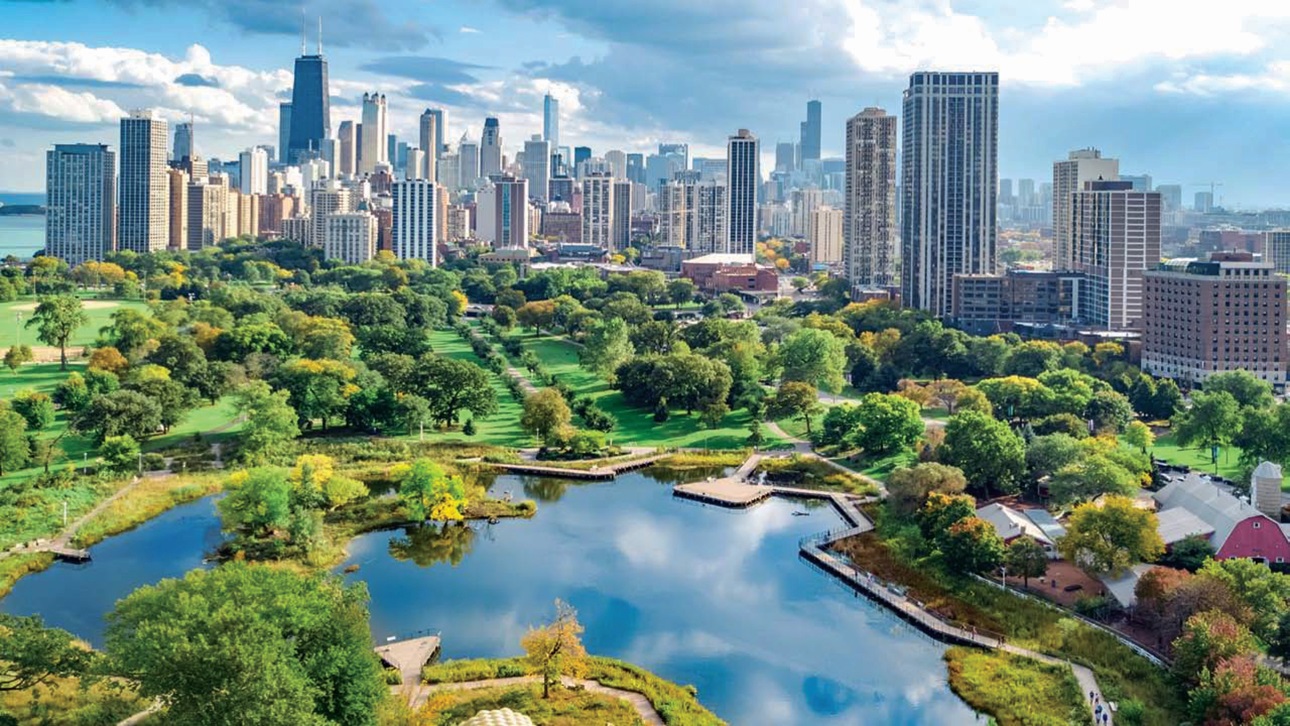Local Challenges, Local Solutions

The Work and Impact of the First Resilient Land Use Cohort
While climate change remains a global-by-nature crisis that knows no geographical boundaries, place-based approaches will pave the way to ensure that climate change adaptation meets the needs of local communities in an equitable manner.
In early 2020, seven ULI district councils—ULI Chicago, ULI Dallas–Fort Worth, ULI Houston, ULI Nashville, ULI New York, ULI Philadelphia, and ULI Tampa Bay—began a long-term effort to tackle land use and climate resilience issues, forming the Resilient Land Use Cohort (RLUC). From flood and extreme heat mitigation at the neighborhood scale to the intersection of racial equity and development, to retrofitting buildings to better adapt to future climate risks and more, the district councils collaborated with the ULI Urban Resilience program to inspire action and promote tangible solutions to complex real estate and land use challenges. The RLUC provides on-the-ground technical assistance through ULI’s flagship technical assistance models: Advisory Services panels (ASPs) and technical assistance panels (TAPs).
This report summarizes the progress and milestones of the seven RLUC panels held throughout 2020 and 2021. It provides an overview of each district council/city panel, notes the recommendations laid out by panelists, and highlights their community-level impacts and outcomes, as well as national impacts through ongoing ULI Urban Resilience thought leadership, national cohort gatherings, and other ULI convenings.
Report Summary: While climate change remains a global-by-nature crisis that knows no geographical boundaries, place-based approaches will pave the way to ensure that climate change adaptation meets the needs of local communities in an equitable manner.
In early 2020, seven ULI district councils—ULI Chicago, ULI Dallas–Fort Worth, ULI Houston, ULI Nashville, ULI New York, ULI Philadelphia, and ULI Tampa Bay—began a long-term effort to tackle land use and climate resilience issues, forming the Resilient Land Use Cohort (RLUC). From flood and extreme heat mitigation at the neighborhood scale to the intersection of racial equity and development, to retrofitting buildings to better adapt to future climate risks and more, the district councils collaborated with the ULI Urban Resilience program to inspire action and promote tangible solutions to complex real estate and land use challenges. The RLUC provides on-the-ground technical assistance through ULI’s flagship technical assistance models: Advisory Services panels (ASPs) and technical assistance panels (TAPs).
This report summarizes the progress and milestones of the seven RLUC panels held throughout 2020 and 2021. It provides an overview of each district council/city panel, notes the recommendations laid out by panelists, and highlights their community-level impacts and outcomes, as well as national impacts through ongoing ULI Urban Resilience thought leadership, national cohort gatherings, and other ULI convenings.


